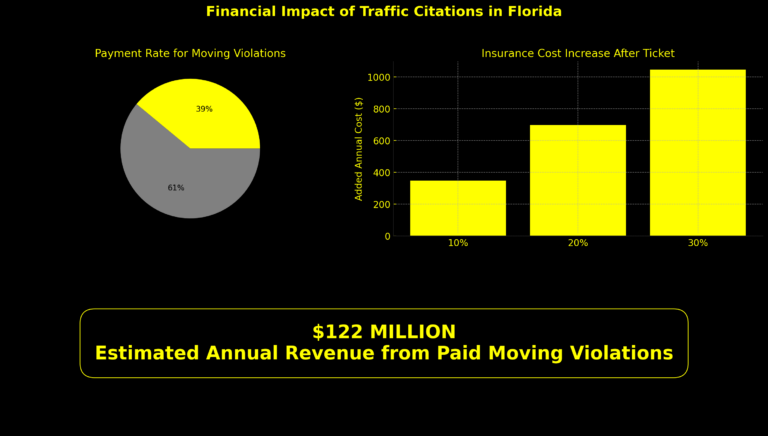Pulled over for going too fast? With Florida’s speeding laws, it turns out that you need to be aware of exactly what the officer is alleging, because going many miles over the speed limit in Florida could significantly affect your future. You can’t afford to be pulled over and charged with driving more than 50 miles per hour beyond the speed limit, so you need to make sure you talk to our FL traffic ticket lawyers immediately.
Why You Need a Lawyer in a High-Speed Speeding Ticket Case in Florida
In a high-speed case, gathering evidence and walking through the charges as soon as it happens is vital. Don’t wait to hire an attorney with experience in high-speed allegations. Minimizing these claims could put you at risk of serious limitations on your driving privileges. The right lawyer, however, can investigate all aspects of your case to determine the most appropriate defense. Even if you’re just going exactly 50 miles per hour over the speed limit rather than 49, officers have the right to charge you with a more serious offense. A well organized defense becomes critical as soon as you have been accused.
What’s the Law in Florida on High Speeds?
How much can you go over the speed limit in Florida? The Florida Statutes clearly outline the consequences for a driver who is caught driving 50 mph or more over the posted speed limit. In Florida, this is outlined under statute 316.1926. This is categorized as a moving violation. If you are convicted of this, you will have four points assessed to your license. 50 mph or more speeding offenses are pursued separately from any other Florida speeding violation.
It’s a mistake to believe that you can only be charged with a minor speeding violation if you’re going 100 miles per hour or even faster in your car. The penalties for violating Florida’s speed laws can be strict if you’re going very fast, and it’s in your best interests to hire our FL traffic ticket lawyers as soon as possible to protect yourself.
How is a High-Speed Charge Different Than a Regular Florida Traffic Ticket?
Florida Statute 316.1926 charges have consequences that are much more serious than a typical speeding ticket. A typical speeding ticket in Florida involves somebody going at least 5 mph and up to 21 mph over the speed limit.
Mandatory court offenses will typically have more serious penalties assessed for going 30 mph up to 49 mph over the posted limit. However, the consequences for going more than 50 mph over the speed limit include:
First Violation
A mandatory fine of $1000 and the judge’s discretion may be applied to convict an offender with 4 points on their record, to order driving school, and to suspend the offender’s license.
Second Violation
The convicted individual is responsible for a mandatory fine of up to $2500, a one year license revocation, a potential conviction with 4 points on the license and any other lawful penalty outside of jail time including ordering driving school.
Third or Subsequent Violation
This is classified as a third-degree felony in Florida with a mandatory fine of $5000 and losing your driver’s license for 10 years and up to 5 years in prison.
A conviction will also affect your ability to be approved for housing, to own a gun, to vote, or to obtain employment. The specific language of the Florida statute does not require expressly that two prior convictions be on your record in order to have your current charge elevated to a felony criminal offense.
It only mandates that an offender be cited for two prior 50 miles an hour or more beyond the speed limit offenses in their lifetime. If you can have a Florida traffic ticket attorney assist you with your case and get the penalties reduced or dismissed, this can allow you to move on with your life.
Traffic Ticket Evidence in a High Speed Case in Florida
There are several different rules and statutes in Florida that limit the admissibility of traffic ticket evidence whether it is obtained via a speedometer, radar, laser or calculated using a stopwatch or similar device. The officer has to prove that they made a determination independently and visually of the vehicle’s speed, that they have completed the radar training course satisfactorily, and that they were using an approved radar unit.
Consulting with our knowledgeable Florida traffic ticket attorney should be your first step as soon as possible after you have been accused. With 27 offices and legal assistants waiting by the phone, we can help begin working on your case quickly. Call 1-800-CITATION for a free consultation.



